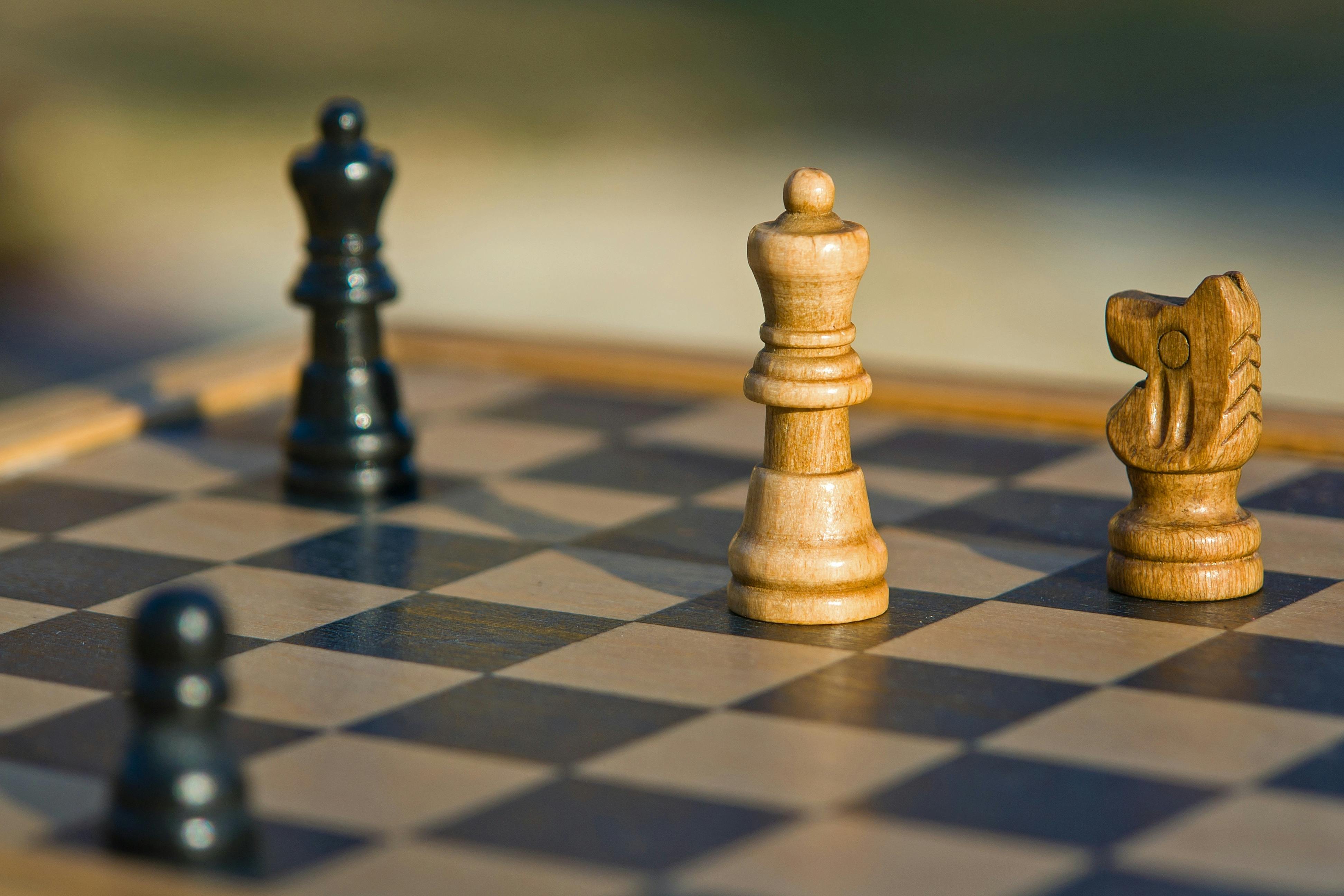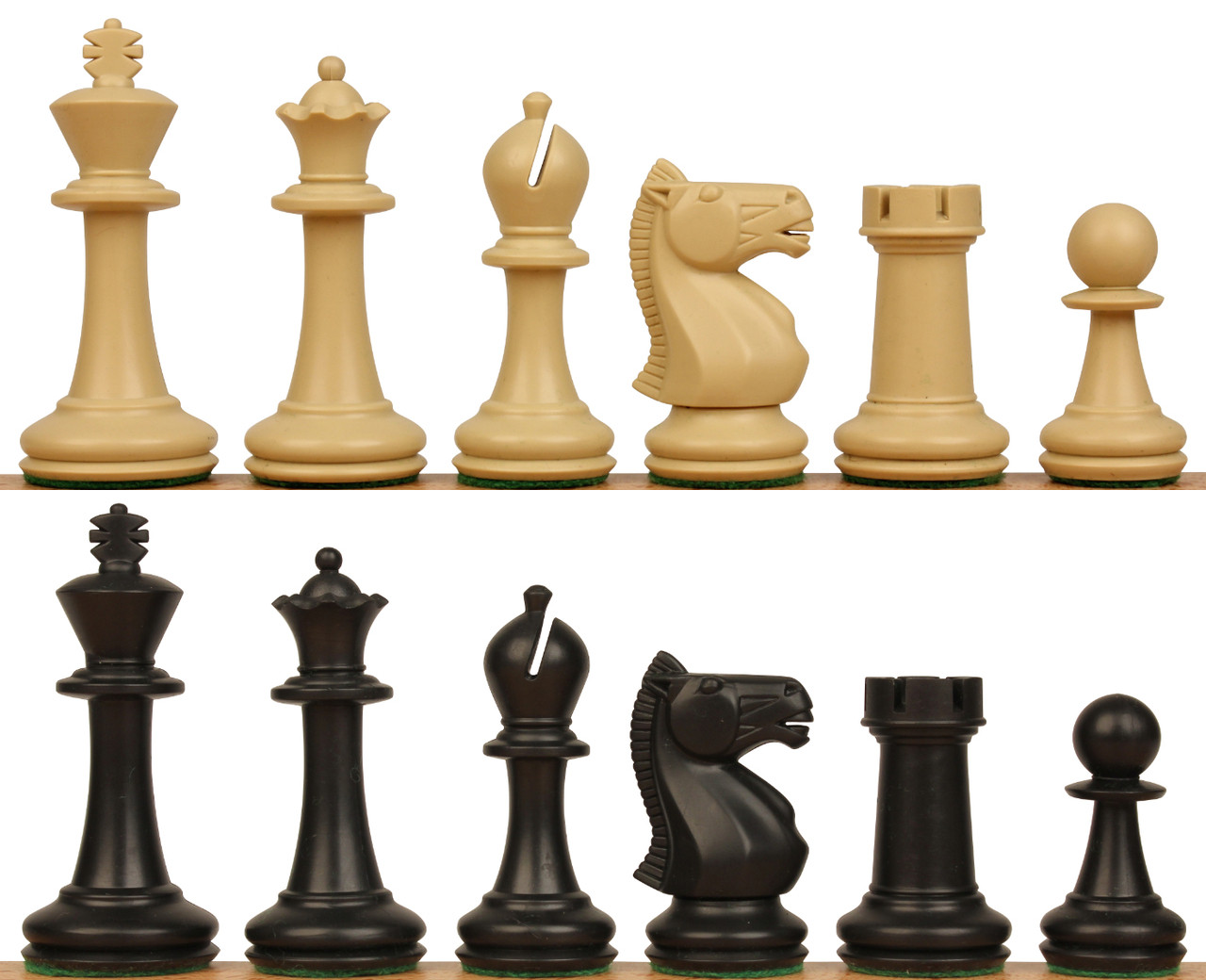Legendary Chess Champions Who Transformed the Sport
Wiki Article
Why You Must Play Chess: The Benefits of Participating In This Timeless Intellectual Difficulty
Chess is more than a straightforward video game; it functions as an extensive psychological workout that develops different cognitive skills. Gamers engage in critical reasoning and establish analytic abilities, which can have long lasting benefits in daily life. The self-control needed for improvement cultivates patience and durability. Yet, truth essence of chess exists not just in its intellectual needs but in the links it promotes within a community. Checking out these measurements reveals much regarding why chess remains classic.Enhancing Cognitive Abilities
Playing chess substantially boosts cognitive skills, making it a useful task for people of all ages. The video game demands strategic thinking and insight, requiring gamers to expect their opponent's actions while formulating a winning method. This mental workout hones emphasis and concentration, essential parts of cognitive feature.
Additionally, chess encourages creativity, prompting gamers to discover cutting-edge methods and unusual techniques to the game. As they navigate the chessboard, people establish perseverance and strength, essential qualities for cognitive development. Generally, the diverse cognitive benefits of chess make it an enriching pursuit, advertising lifelong imagination and intellectual engagement.
Improving Problem-Solving Talents
Various research studies have actually shown that participating in chess can greatly improve analytic abilities. The game calls for players to evaluate intricate settings and prepare for the opponent's moves, cultivating essential believing abilities. As they navigate numerous circumstances, chess players develop the ability to evaluate numerous results and make calculated decisions under stress. This procedure enhances their capability to technique real-life issues with an organized mindset.Chess advertises the identification of patterns and the application of rational reasoning, skills that are important in effective problem-solving. Players learn to evaluate dangers and incentives, refining their judgment in unsure scenarios. The recurring nature of chess play strengthens these abilities, permitting people to move their improved problem-solving capacities to academic and professional contexts. Eventually, chess functions as a beneficial tool for any individual looking for to sharpen their analytical skills and improve their general cognitive functioning in challenging circumstances.
Growing Patience and Self-control
While taking part in chess can be an interesting experience, it also calls for a substantial level of perseverance and discipline. Players have to learn to thoroughly consider each relocation, evaluating prospective end results and methods. This thoughtful method cultivates a frame of mind that values lasting success over immediate satisfaction. In chess, hasty choices commonly result in negative repercussions, enhancing the relevance of taking one's time to examine the board and expect a challenger's feedbacks.
Technique is more grown via consistent practice and research study. Gamers usually devote hours to boosting their skills, examining methods, and evaluating previous video games. This dedication to mastering the game imparts a feeling of duty and perseverance, vital traits that prolong past the chessboard. Inevitably, the combination of patience and self-control not just boosts a player's chess capabilities yet likewise adds to individual development, equipping individuals with important tools for maneuvering challenges in various aspects of life.
Promoting Creativity and Imagination

Planning moves includes not simply reasoning however likewise the ability to prepare for an opponent's responses, motivating gamers to visualize numerous paths and alternatives. As players experiment with different techniques, they find out to introduce and adjust, boosting their imaginative problem-solving skills.
The video game's intricacy invites players to check out unusual ideas and methods, leading to personal designs of play - Chess. This exploration nurtures a sense of artistic expression, as each player crafts their own approach to obstacles on the board. Inevitably, chess comes to be a canvas for creative thinking, permitting people to share their one-of-a-kind viewpoints while establishing their imaginative abilities
Building Social Connections and Community
Playing chess provides chances for individuals to network through tournaments and regional chess clubs. These atmospheres promote links among players, creating a feeling of recreation center around a common enthusiasm. Involving in these activities not only improves skills but likewise builds long lasting connections.Networking Through Tournaments
When participants participate in chess tournaments, they usually locate themselves engaged in a dynamic community of similar people. These events offer an outstanding platform for gamers to build links, share techniques, and celebrate their enthusiasm for the game. Participating in friendly competition cultivates friendship, as players from diverse histories collaborated to test each various other. Networking chances abound, with many individuals developing long-term friendships that extend past the chessboard. In addition, these competitions typically attract enrollers and chess enthusiasts, further improving the possibility for professional links. As gamers participate in discussions concerning tactics and experiences, they develop a network that can bring view publisher site about future collaborations and chances within the chess globe and past.Local Chess Clubs

Providing a Fun and Engaging Challenge
Chess uses a distinctively stimulating experience that mesmerizes gamers of any ages, as it check here integrates strategic reasoning with the thrill of competitors. This timeless game offers a compelling obstacle, urging individuals to assume seriously and creatively. Each match unfolds as a fight of wits, where players need to anticipate their challenger's moves while developing their very own approaches.The intellectual engagement chess gives is matched by its capability to amuse. Gamers typically locate themselves immersed in the game, shedding track of time as they navigate intricate positions and tactical dilemmas (Chess). This enhanced focus promotes a feeling of accomplishment, particularly when a difficult move causes success
In addition, chess advertises social interaction, enabling gamers to bond over shared experiences and difficulties. The video game's limitless variations ensure that no two sessions are alike, keeping individuals passionate to improve their abilities and methods. This vibrant blend of difficulty and enjoyment makes chess an irresistible pursuit.
Regularly Asked Inquiries
Can Chess Be Played Online or Just face to face?
Chess can be played both online and personally. On-line platforms provide players the comfort of completing versus challengers worldwide, while in-person games foster social interaction and physical presence, enriching the overall experience.What Age Is Best to Begin Understanding Chess?
Specialists recommend that kids can start learning chess as very early as age 5 or 6. At this age, they can comprehend fundamental ideas, improving cognitive abilities while promoting a love for the video game that lasts a life time.Are There Chess Tournaments for Beginners?
Yes, there are chess competitions particularly developed for newbies. These occasions supply a supportive setting for beginner gamers to acquire experience, boost their skills, and appreciate the competitive spirit of chess without dealing with advanced challengers.The length of time Does It Take to Come To Be Skilled at Chess?
Becoming efficient at chess typically needs regular practice over several months to years. Aspects such as individual devotion, previous experience, and research study of methods considerably influence the time needed to reach a competent degree.What Resources Are Available for Knowing Chess Methods?
Many sources exist for finding out chess strategies, including online tutorials, books by popular authors, chess apps, and interactive sites. Several gamers likewise take advantage of joining neighborhood clubs or getting involved in on the internet forums for real-time understandings.Report this wiki page